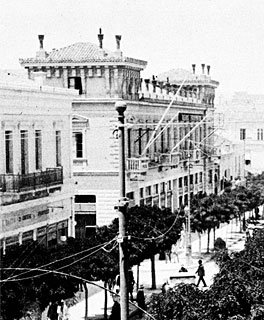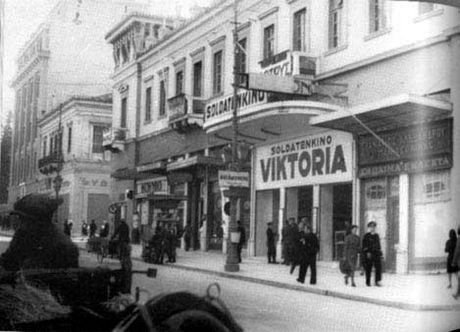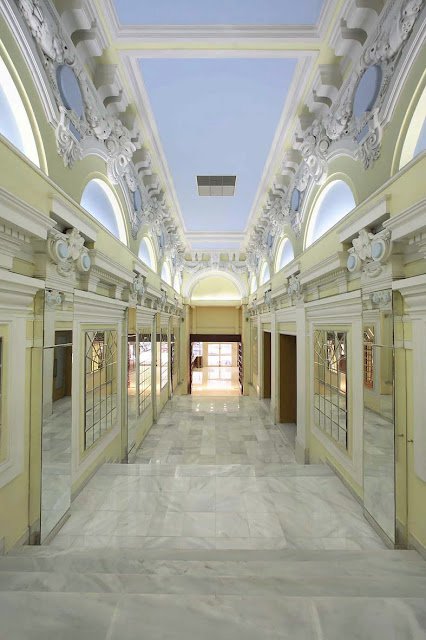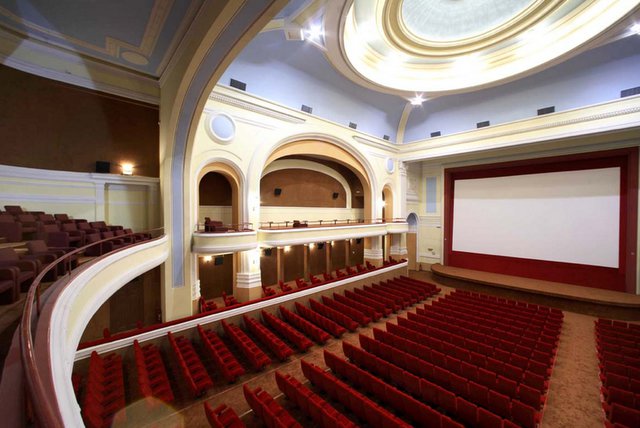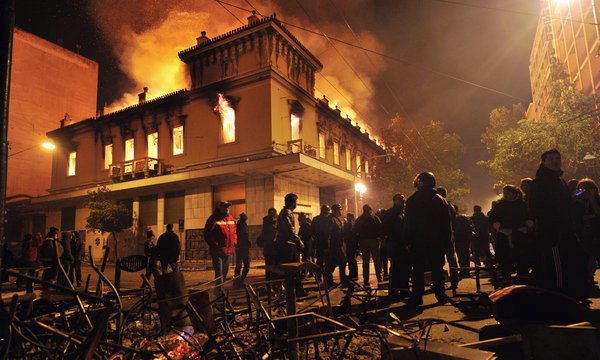 |
| Μπορει να μοιαζει καπως και τη Νεα Υορκη η Μελβούρνη,με τα διαρκως αυξανόμενα ψηλά κτήρια ,αλλα στις τιμες ξεπερνα κατα πολύ τηνπολιτεια με τους ουρανοξύστες. |
Melbourne ranked eighth most expensive city in the world
Η Μελβούρνη ,μπορει να θεωρείται η καλύτερη πόλη του κόσμου για να ζήσει κανεις,αλλα σε μια πρόσφατη έρευνα εμφανίζεται να είναι κατα 50% ακριβότερη της Νέας Υόρκης.
Σε παγκόσμια κλίμακα ειναι η 8η ακριβότερη πόλη στον κόσμο ,μια θέση πιο πίσω απο το Σύδνευ που κατέχει την 7η θέση..
Η έρευνα αποκάλυψε ότι ητιμή μιας φρατζόλας ψωμιού στη Μελβούρνη υπερδιπλασιάστηκε την περ.10ετία,ενω η τιμή της βενζίνης τριπλασιάστηκε ...και ανάλογα μεγαλες ήταν οι αυξήσεις σε ρύζι και σε άλλα προιόντα.
Αν και τα μονοπωλιακά μεσα ενημέρωσης αποδίδουν την αιτία των αυξήσεων στην άνοδο της τιμής του Αυστραλιανου δολλαρίου,στην ουσία όλα φανερωνουν ότι η απλειστία των μονοπωλείων και των μετόχων έχουν κάνει τη ζωή των εργαζομένων αφόρητη όπου με πολύ δυσκολία τα καταφέρνουν να ανταπεξέλθουν στις υποχρεώσεις τους..
Δεν ειναι βέβαια τυχαίο ΄οτι η Μελβούρνη κατέχει και την πρωτιά στις απόπειρες αυτοκτονίας..
Για τους αγγλομαθείς δειτε πως παρουσιάζει το όλο θέμα η σημερινή Χέραλντ -Σαν της Μελβούρνης
MELBOURNE might be the world's most livable city, but research has found it is almost 50 per cent costlier than New York.
The strong dollar is being blamed for squeezing Aussie wallets, with five of the nation's capitals ranked more expensive than destinations such as London, Hong Kong and Berlin.
Melbourne was named the eighth most expensive city, one place behind Sydney, in the Worldwide Cost of Living Survey.
The survey found the cost of a loaf of bread in Melbourne almost doubled in the past decade, while petrol prices rose three-fold and rice almost quadrupled.
Report editor Jon Copestake said the cost of living in Melbourne was up dramatically compared with 10 years ago when it was more than 25 per cent cheaper than the Big Apple.
"Exchange rates have been the greatest influence, with the Australian dollar seeing its value relative to the US dollar double," Mr Copestake said.
Melbourne was named the eighth most expensive city, one place behind Sydney, in the Worldwide Cost of Living Survey.
The survey found the cost of a loaf of bread in Melbourne almost doubled in the past decade, while petrol prices rose three-fold and rice almost quadrupled.
Report editor Jon Copestake said the cost of living in Melbourne was up dramatically compared with 10 years ago when it was more than 25 per cent cheaper than the Big Apple.
"Exchange rates have been the greatest influence, with the Australian dollar seeing its value relative to the US dollar double," Mr Copestake said.
"Local price inflation, especially last year, has also played a part."
HSBC chief economist Paul Bloxham said 20 years of economic growth had helped fuel the increases.
"The cost base does tend to increase when that happens," Mr Bloxham said. "In some ways, it's the cost of success."
But inflation remained in check and income growth outpaced price increases.
"That's supporting our ability to meet local costs," Mr Bloxham said.
"And then, of course, the strength of the Aussie dollar is also meaning that we can afford to buy more things from overseas."
The survey, conducted by The Economist, compared the price of 160 products and services in 130 cities.
Zurich was the world's most expensive city, overtaking Tokyo. Perth (12th), Brisbane (equal 13th) and Adelaide (equal 17th) also made the top 20.
In a separate study, Melbourne rated best in the nation in the world's top 50 university cities.
The inaugural QS Best Student Cities survey said Paris was the world's best location for education with Melbourne fourth and Sydney sixth.
hoskingw@heraldsun.com.au
The ten most expensive
| ||||
Country
|
City
|
WCOL index (New York=100)
|
Rank
|
Rank movement
|
Switzerland
|
Zurich
|
170
|
1
|
4
|
Japan
|
Tokyo
|
166
|
2
|
-1
|
Switzerland
|
Geneva
|
157
|
3=
|
6
|
Japan
|
Osaka Kobe
|
157
|
3=
|
-1
|
Norway
|
Oslo
|
156
|
5
|
-2
|
France
|
Paris
|
150
|
6
|
-2
|
Australia
|
Sydney
|
147
|
7
|
-1
|
Australia
|
Melbourne
|
145
|
8
|
0
|
Singapore
|
Singapore
|
142
|
9
|
-3
|
Germany
|
Frankfurt
|
137
|
10
|
-1
|
The ten least expensive
| ||||
Country
|
City
|
WCOL index (New York=100)
|
Rank
|
Rank move
|
Amman
|
Muscat
|
63
|
120=
|
-10
|
Bangladesh
|
Dhaka
|
61
|
123
|
-3
|
Algeria
|
Algiers
|
59
|
124
|
2
|
Nepal
|
Kathmandu
|
58
|
125=
|
2
|
Panama
|
Panama City
|
58
|
125=
|
-4
|
Saudi Arabia
|
Jeddah
|
57
|
127
|
-6
|
India
|
New Delhi
|
56
|
128
|
0
|
Iran
|
Tehran
|
54
|
129
|
0
|
India
|
Mumbai
|
52
|
130
|
0
|
Pakistan
|
Karachi
|
46
|
131
|
0
|
65 comments on this story
http://www.heraldsun.com.au/news/more-news/melbourne-ranked-8th-most-expensive-city-in-the-world/story-fn7x8me2-1226270867159
